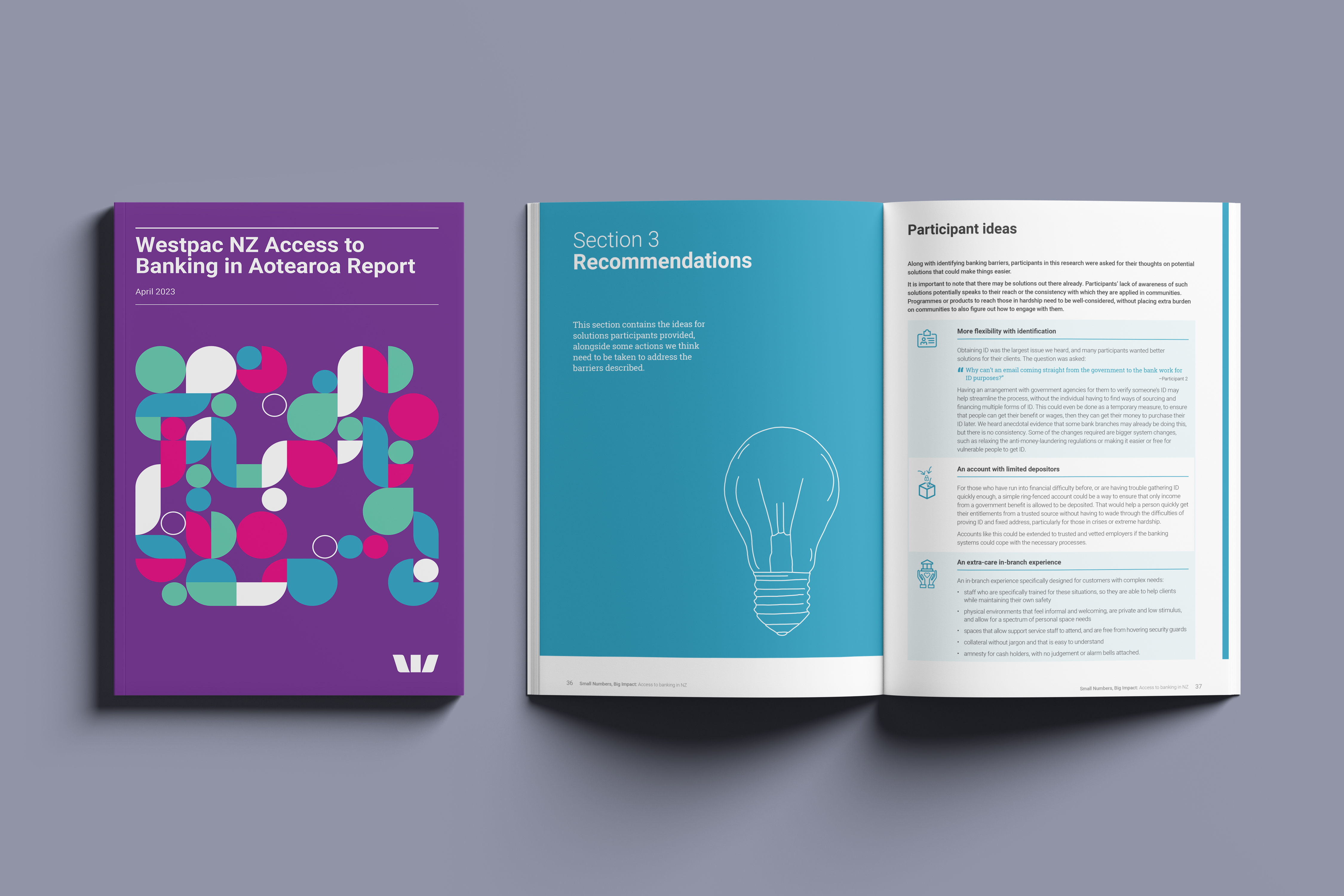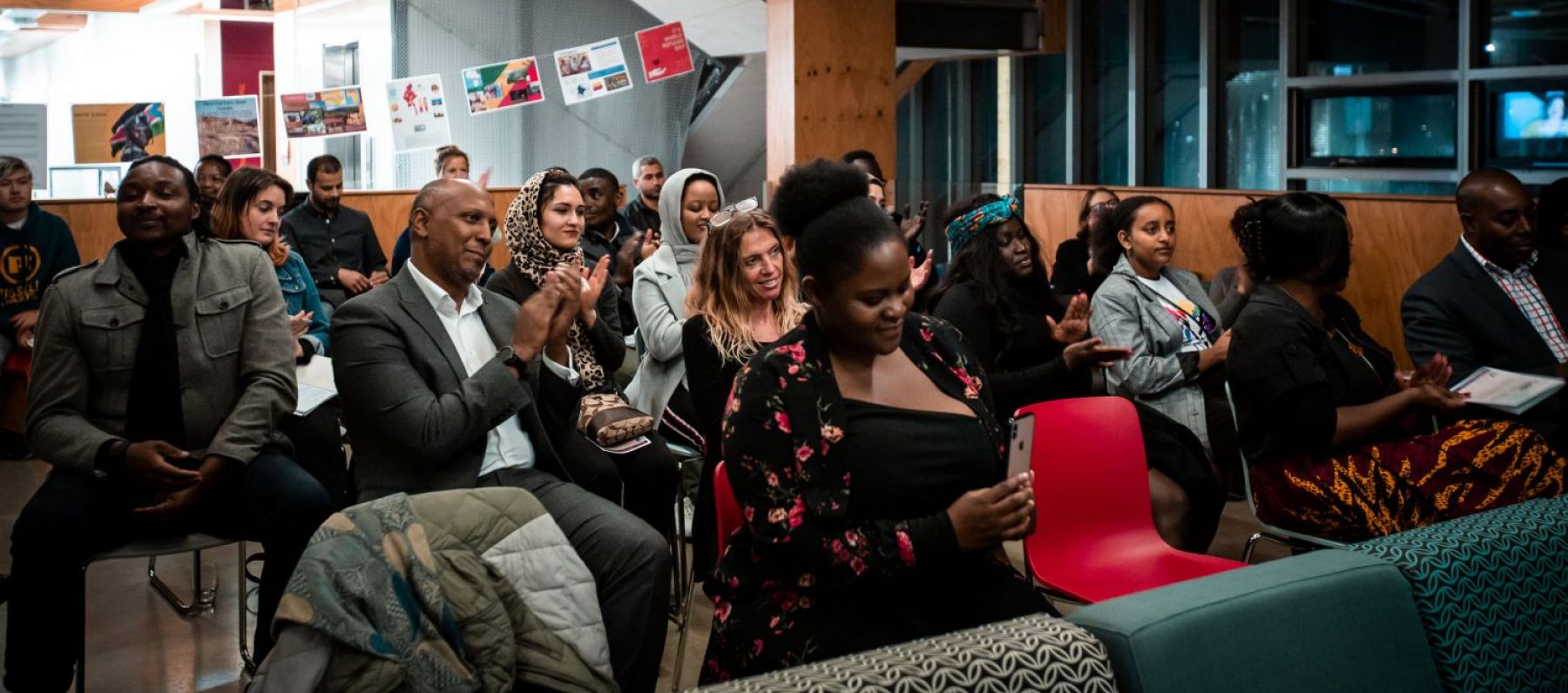STUDIO
The impetus for the project began with sobering health data that showed young Māori women had high rates of smoking. For the past three years, the Ministry of Health has been exploring how to improve stop quit rates for wāhine Māori. John Whaanga, Deputy Director-General, Māori Health, says that solving health inequities requires new ways of working, challenging our own pre-conceptions and doing a whole lot of small things to make it better. Phases two and three of The Young Māori Women’s Smoking Cessation project have done just that – tackled a health equity challenge with some refreshed thinking, determination, optimism and an experimental mindset that involved a “learn as we go” design approach
The Challenge:
In 2016, the NZ Health Survey showed that self-reported daily smoking for Māori women aged between 18 and 24 was 42.7% compared with 8.6% of non-Māori women of the same age. This is a concerning statistic and a health equity problem. In 2017, the Ministry of Health contracted ThinkPlace to conduct research to explore why young Māori women smoke. Along with a Ministry team, we gained insights through deeply exploring experiences in the community with young wāhine Māori.
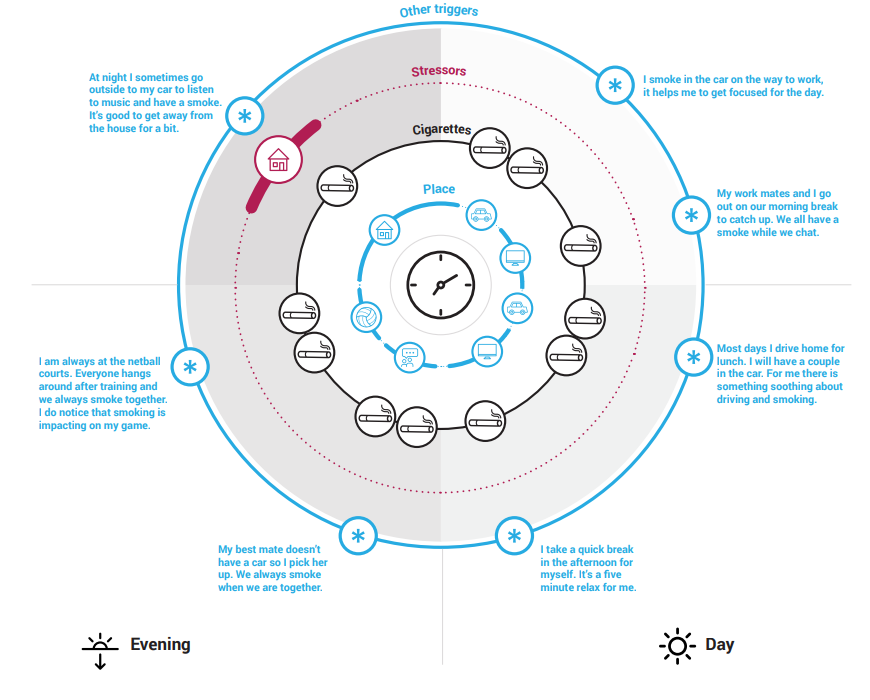
We then entered phase two which posed the question:
How can we work together with quit smoking providers to co-create small-scale, achievable prototypes?
The Response
This project took place in two phases
Phase 1
Four providers were chosen as partners to participate in creating different prototypes for an experimental phase. They participated in a rapid, two-day, bootcamp style prototype development activity working with the insights from phase one and then thinking fast, getting ideas out quickly and rapidly turning their ideas into prototypes for trial implementation and “a learn by doing phase” back at their local clinics. The trials ran over a period of about eight months. Alongside the trials, the prototypes were closely evaluated by Kaupapa Māori evaluators in a reflective approach whereby they asked questions in real time as the providers learned from this trial phase. Across the four prototypes, five elements were highlighted by the evaluators as being critical to success. They were:
- A holistic wellbeing approach – looking to address whole-of-life issues facing young Māori women and addressing smoking cessation within this context
- Reframing quitting in the context of living well – using goal-setting and planning processes to identify and prioritise personal and whānau wellbeing goals that are important to the women
- Being responsive to the needs of women with priorities set by the women – employing a ‘whatever it takes’ mentality when responding to engagement issues and supporting women to lead their own development and set their own priorities
- Making non-smoking more attractive than smoking – creating positive, social and supportive environments for the women by facilitating connections with their peers
- Using culture as a connector and enabler – using tikanga (Māori cultural practices and principles) to connect women to each other and their cultural roots, and to affirm their identity as Māori.
- ThinkPlace facilitate rapid prototyping in quit smoking program for Maori Women in NZ
Phase 1 impact
The findings demonstrated a range of positive outcomes for the participants of the prototypes, including:
- Increased self-confidence, self-esteem and self-belief
- Strengthened ability to develop plans and set goals
- Greater awareness of personal and whānau options and opportunities
- New or strengthened connections to people, information and services
- Reduced isolation
- Fewer experiences of domestic violence and increased knowledge of strategies and support services
- Lower stress and greater knowledge of strategies to manage and mitigate stress
- Improved relationships with partners, children and whānau
- Decreased anxiety and depression
- Reduced alcohol consumption and drug use
- More money to meet day-to-day expenses and to provide for their children and themselves
- Improved parenting skills and improved relationships with children
- Pride in providing smokefree environments for their children, being motivated to quit and successfully quitting.
Phase 2
This phase was designed to “stress test” the five key elements further with an expert reference group. The group of 14 participants included: smoking cessation experts, service providers and quit coaches, one of the Kaupapa Māori evaluators and Ministry contract managers. The reference group came together four times in Wellington from March to June 2019. Each hui was a day-long design process where the team tested and formed the concepts from the insights, prototypes and evaluations into a final view. This resulted in Ka Pū te Rua, ka Hao te Rangatahi, Good practice guidance for stop smoking services to work in more responsive ways with young wāhine Māori.
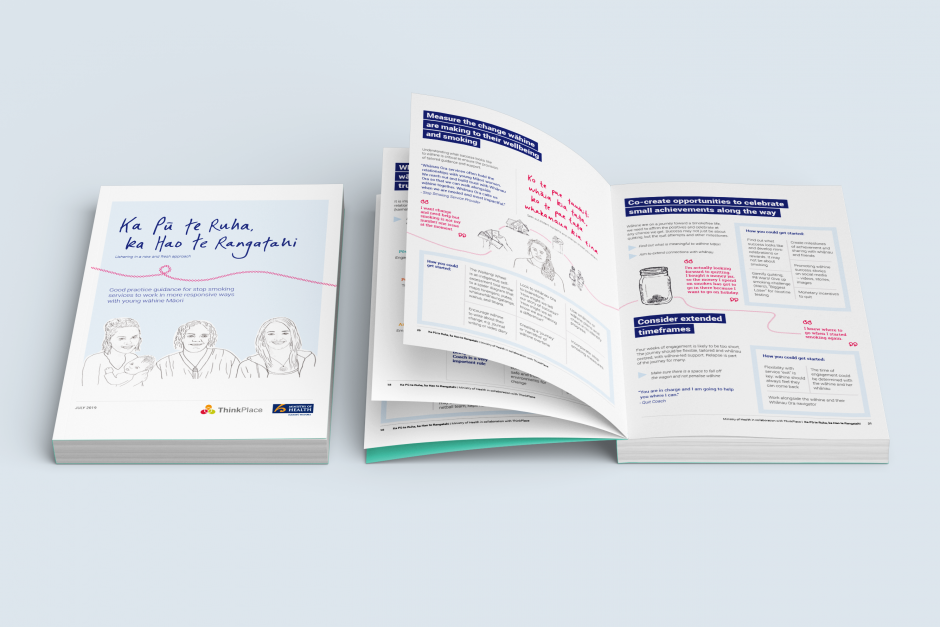
There are three core values and nine principles of good practice. The core values are that:
- As much as possible, the service experience should be co-designed or wāhine-led, and
- Try to match the diverse needs, preferences and lived realities of young Māori women, and
- Stop smoking services should be considered in context of other life goals and needs – it may not work to solely focus on stop smoking.
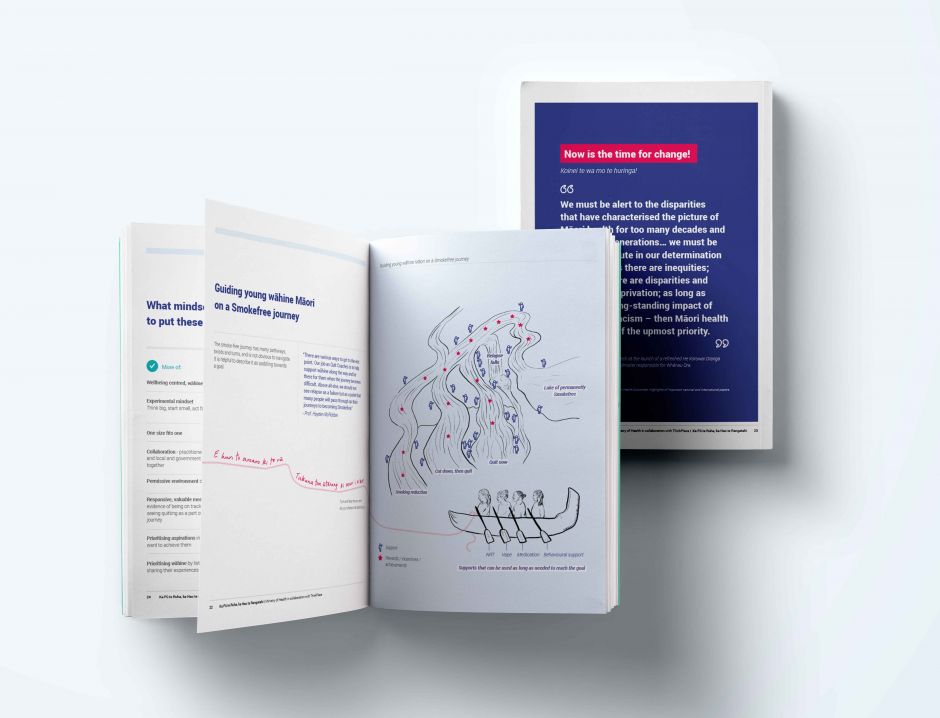
The principles for ways of working with young wāhine Māori are,
- A proactive invitation
- Creating opportunities for support people, such as friends and whānau to engage alongside the wahine
- Mates matter, so include them when possible
- Make the process fun and creative
- Whakawhānaungatanga is imperative
- Remove barriers to the activities
- Measure the change to their wellbeing alongside smoking changes
- Co-create opportunities to celebrate small achievements
- Consider timeframes past the four-week quit goal
Phase 2 impact
The guidance was intended to be a document for providers to use in a way that is appropriate to their local services. The Ministry employed a “soft launch” approach of the guidance document in October/November 2019. The document was introduced to the contracted providers as a new way of working with young Māori women that gave them latitude to incorporate it in ways that suit their local contexts. ThinkPlace is currently evaluating whether and how the service providers are using the Guidance in their practices.
Link to guidance document here.

